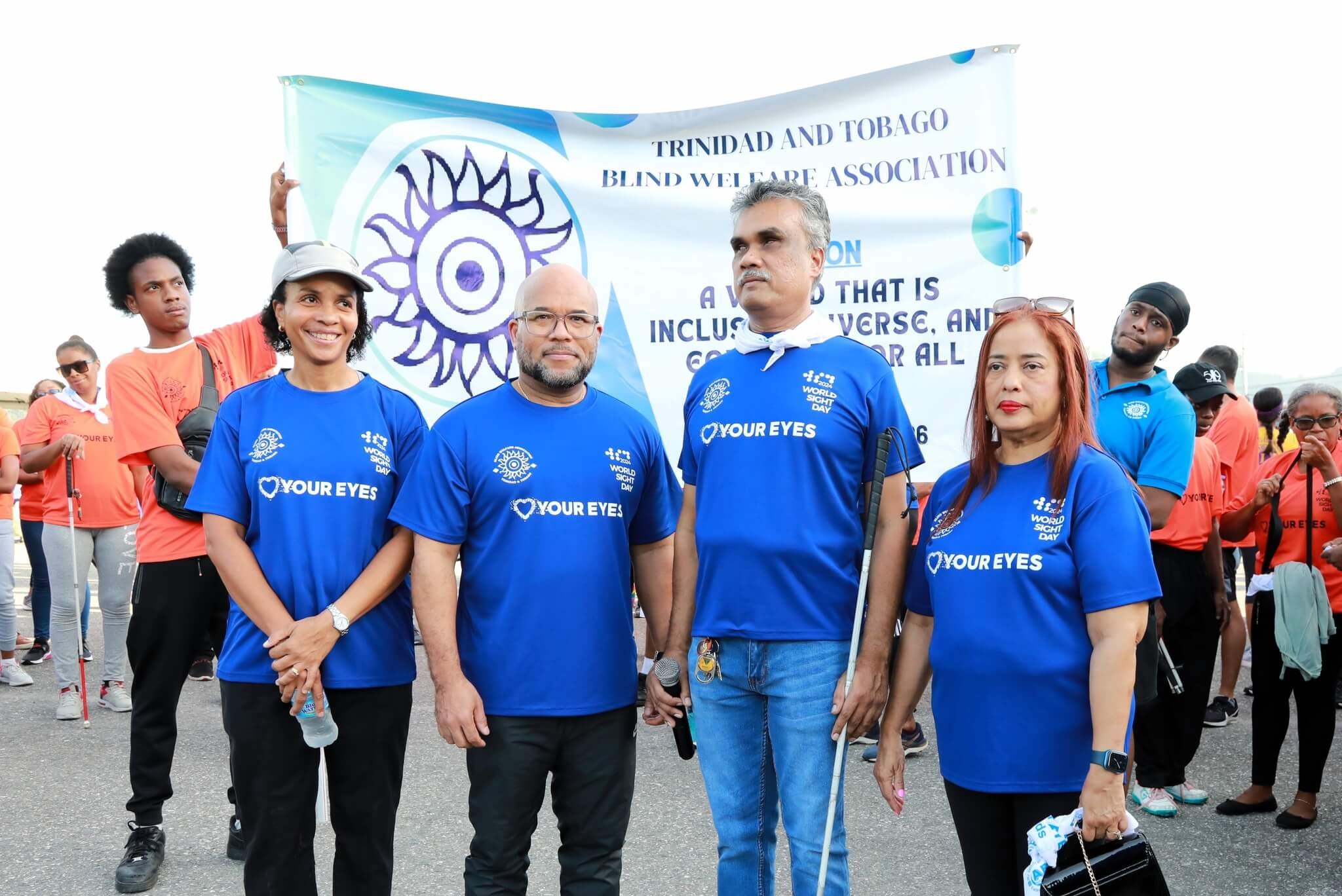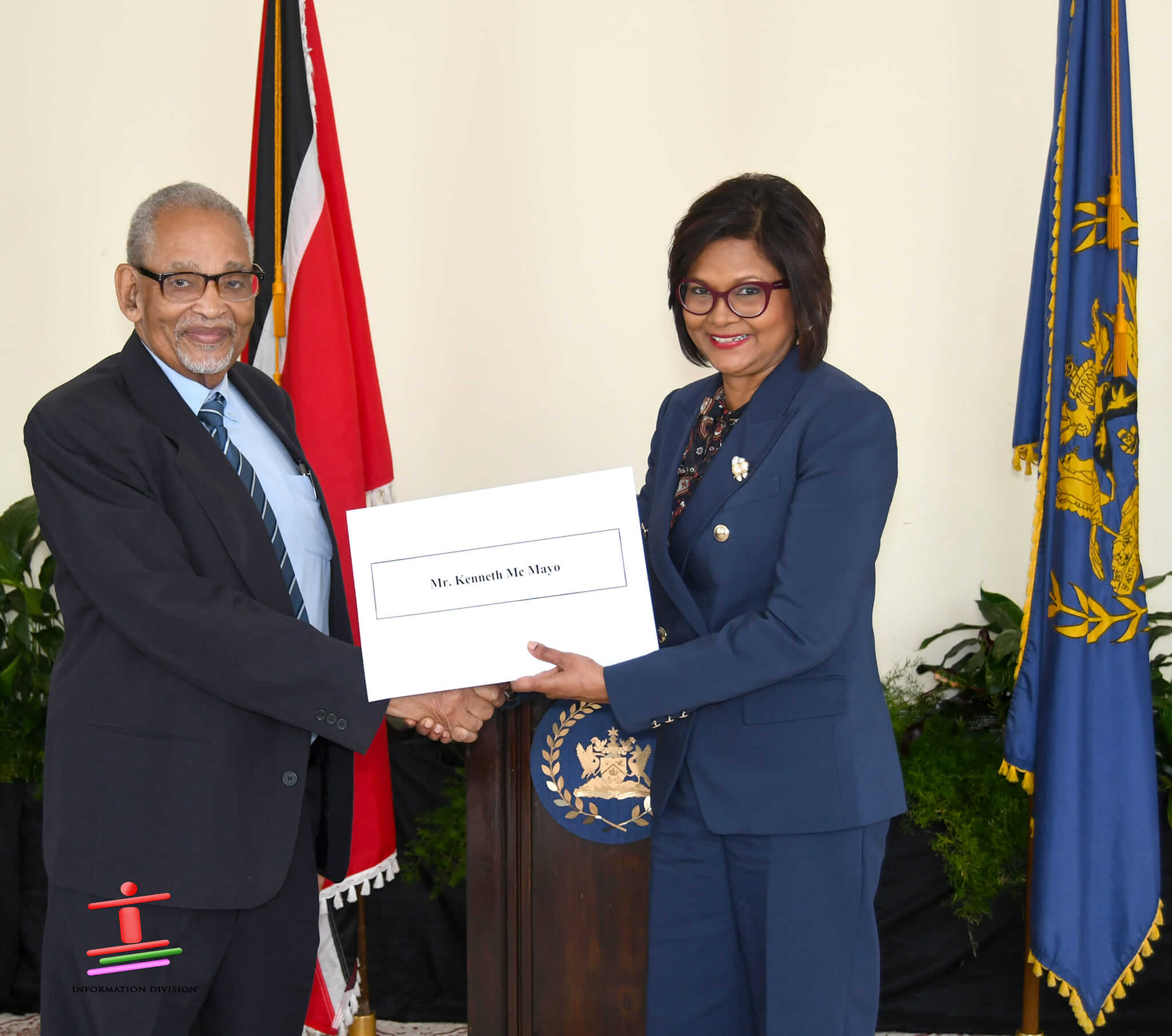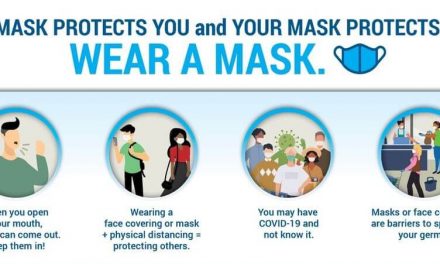Good morning.
I have often wondered and more so since becoming President, what are the goals and meaning of real education. Martin Luther King Jr once said that, “Intelligence plus character—that is the goal of true education.” Society tends to uphold academic achievement as the litmus test of a good education. But like Martin Luther, I believe that good grades are of little value if the student lacks the empathy, kindness, and the moral compass needed to make a valuable contribution to society. True and comprehensive schooling goes beyond literacy and numeracy and encompasses an all-round approach to life skills, personal development and character building.
This developmental programme was a wonderful initiative that tackled realms traditionally untouched by the national curricula. As an avid proponent of youth development, I thank the Marabella North Secondary School for the opportunity to celebrate with their graduands and student body and share my perspectives on their programme.
Many children in our schools are at risk of being left behind, not only because they fall short in academic performance but also because of a failure to address critical social issues which impede their personal development. Programmes like me, myself and I provide our most precious assets with a fresh outlook on their circumstances and empower them make better decisions.
I share the view of Frederick Douglass, an American abolitionist and statesman who said, “It is easier to build strong children than to repair broken men.” Not only should our children be trained in their scholarly academic pursuits but also in navigating the inevitable challenges that will come their way.
Everyone in this room has a stake in ensuring that our children attain their greatest potential. As future leaders of Trinidad and Tobago, their emotional and psychological needs must be met especially during the formative years. If we are to ensure that no one is left behind, we must remove our rose-tinted spectacles and acknowledge the grim realities facing many of the nation’s schoolchildren.
Broken homes, poor parenting, bullying and various forms of abuse hamper the development and growth of our young people. For many of our young men, membership in gangs, with its lure of fast money and easy gains has a stronger appeal than hard work, discipline and delayed gratification, putting them at risk of incarceration or worse yet, an untimely end. This must be understood for what it is—a glaring failure of our education and social systems.
Your developmental programme has put graduands in a good position to manage and surmount the challenges and temptations they face on a daily basis. It has broadened their horizons, increased their knowledge of important life skills and enhanced their ability to become productive members of society.
Although the family is traditionally the first port of call in providing the love and support necessary for children to thrive and flourish, in our society, this does not always obtain. The parenting component of this programme is both necessary and relevant as it not only encourages communication and bonding in the parent-child relationship but also ensures that parents are on the same page as their children in relation to the values and ideals promoted by the programme.
Parents, congratulations on having completed your module of the programme. Attending these classes was a good first step and I now urge you to build upon the foundation that was laid during the various sessions and exercises of the past few months. I am sure that the learning experience was not singular to your children, proving the old adage that education never ends—life, from the moment you are born to the moment you die, is a process of learning.
Graduands, let your chests swell with pride—you have successfully completed a programme that provides you with a springboard to responsible and productive citizenship in Trinidad and Tobago. Over the course of two terms you have tackled matters of self-esteem, peer pressure, addiction, abstinence, etiquette and citizenship. All important and substantial topics, the last of which is of particular interest to me.
Like the Student Support Services Division, I have embarked on a youth development programme. The four-year programme, now in its pilot phase, is called Citizen True, and it aims to convey the ideals and values of good citizenship to young people who are now in second form. Since the start of the programme, they have been introduced to many of our national institutions and treasures, and gained knowledge on financial literacy, etiquette and protocol. Except for the four Tobagonians, the participants were not specially selected. They were a readymade group of children, then just about to enter first form, who responded to a call by the radio programme Eye on Dependency to attend a symposium aimed at easing the transition from primary to secondary school. Unfortunately, only one of our participants is from South Trinidad but he represents you well. When we roll out the programme to the population in September next year, we are determined to ensure that the Southland has fair and proportional representation.
A key challenge in your developmental programme was that only 30% of parents participated, which although regrettable, is not unusual but it is difficult to successfully grow children without the involvement and interest of their parents. In Citizen True we insist on 100% attendance and cooperation from parents. We know that that is not always easy or convenient but ‘Anything worth having is worth working hard for.’
As the participants of Citizen True, children and parents, are now learning and as you would have learnt during me, myself and I, good citizenship is not necessarily about being academically gifted but also involves your attitude and actions toward your fellow citizens and country as a whole. Former American president Calvin Coolidge used the expression “Looking out for yourself by looking out for your country” to describe the exercise of citizenship. Your wellbeing, your prosperity and your happiness are inextricably linked with that of the country; one does not thrive without the other.
Your contribution to the nation does not need to be a grand gesture. Never think of yourselves as too insignificant or underestimate the contribution that you can make to society. You can practise good citizenship by being caring and compassionate towards others, establishing and maintaining firm principles for yourself and your peers, being punctual and attentive at school and proactive about environmental conservation. We all have a part to play. Given the curriculum of the programme that you have just completed, I am confident that you are all on track to being confident yet humble; to lead, not follow blindly; to steer clear of illegal drugs; to make wise decisions concerning your body and your health; to practise decorum and understand that there is a time and place for everything; and of course how all of those things combined comprise good citizenship.
It may not be obvious to you, but you are more fortunate than most young persons of your age. Many of the young men and women who frequent the doors of our court houses might have made different choices if they had had the benefit of participating in courses like me, myself and I during these critical years. With this programme, you have had a useful head start.
I see in front of me a unique blend of personalities, aptitudes and interests; each of you harbouring newfound hopes and expectations for the road ahead. Some of you will soon be finishing school while others still have a ways to go. Regardless of where you are on the continuum, my advice to you is to keep the momentum you got in this programme going. To the graduands, don’t allow the rich deposits of the past two terms to slip through your fingers. You would have wasted your time and your mentors’ if by this time next week, you were to revert to any previous poor attitudes and behaviours. Make the most of this and every other opportunity that comes your way. For the other students, don’t feel left out, I am sure that your peers will be happy to share their knowledge with you so that you too can benefit from the valuable lessons of the programme.
One day, all of you will inherit this country. If you pay attention from now to your character and personal development, the promise and potential of our homeland will be assured and those of us adults who are now in the driver’s seat can hand over the steering wheel to you without hesitation or fear.
I eagerly wait to see what each of you will bring to the table in the years to come, having undergone this timely programme. I recognise and salute the prize winners in various subjects but I reserve my heartiest applause for the top performers in me, myself and I. I congratulate you all on your achievements.
As you continue your academic journey, channel your energy, talent and passions into making this nation, if I may borrow a line from an old calypsonian, the Mighty Sniper, a land of which you can be proud and glad. Stay true to the motto of Marabella North and do your best, always.
I leave with you the advice that St Paul gave to the Galatians, “never grow weary of doing good, for in due season you will reap, if you do not give up.”







